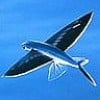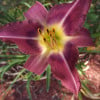Noindex / Idled Hubs and their impact on backlinks
Hi there,
I've been hearing discussions that noindexing hubs (because they are idled) impacts their backlinks in some way, and I'd like to find out if this is true.
I've been researching this a bit online and have found the following:
- According to the Google Webmaster forum, Google *does* count links from noindexed hubs to other pages, so long as the links are *not* marked 'nofollow' (which they aren't): Source: http://productforums.google.com/forum/# … 0RJ-FRIiJM
- According to an expert on SEOMoz, link / pagerank juice *does* flow to and from a noindex page: http://www.seomoz.org/q/noindex-follow- … link-juice
- According to 'Search Engine Round Table' NoIndex won't hurt your site but can hurt pages: http://www.seroundtable.com/noindex-goo … 16185.html
- According to Webmaster World, 'Link juice still accumulates for the noindex URL as long as there is a link pointing to it.' - http://www.webmasterworld.com/google/4282288.htm
- According to other sites I have read, the *only* thing Noindex does it remove the page from Google's results pages and has no other impact.
I admit to being confused by this. Does anyone have any evidence or reputable studies one way or the other as to the actual impact of a page having a noindex tag / idled hub on the following:
1. Links from that page to other pages (i.e. not passing backlink juice)
2. Links to the noindexed page being broken in Google's eyes
3. Breaking the general flow of links
I'd appreciate it if we could avoid conjecture, I'd honestly be interested to know if anyone has seen research that can shed some light on this.
If idling hubs *does* impact backlinks and 'break' themthen that's clearly a significant impact.
If however it 'simply' removes the hub from search results but it can still receive and send linkjuice from/to backlinks, then getting it re-featured will mean everything will remain as it did prior to being idled.I'm more concerned with the lasting effects the no-index tag has on a hub during the pending stage, Paul. Since it seems to be hopeless to edit an idled hub in hopes of getting more traffic, most probably simply deletes it moves it to a site which doesn't have this ill-conceived program. I simply advise others to unpublish a hub if Google visits it before it is featured as many of us--except for the favorites, of course--see this being detrimental to the hub even after it is featured. I believe if everyone would do this HP would get on the ball and straighten this mess out. They don't trust me to publish instantly and I don't trust them to not tell me why. I suppose it's a matter of mutual mistrust. Always good for a business, eh?

- summerberrieposted 12 years ago
0
Paul,
I've read conflicting information. It seems there is more than just hubbers scratching their heads. So I'm not going to try an answer until I can find a reliable source addressing the unique situation HP has put our sub-domains in. Again it is the practice of this cycle of de-indexing that I "think" will cause issues down the road. Personally, once a hub of mine goes idle. I let it stay idle. I may move it later. But for now I"m just waiting for the green light from HP when they extend the grace period for idling and when they shorten the pending period before tweaking. I just do not want to take chances without knowing.
I'm interested in what others have found out in their research.Thanks Summer, I'm in the same boat about the conflicting information. I can see about new backlinks not being added, and us losing them in the 'You might be interested in' on the HP pages - It's whether we lose external ones that concerns me.
I don't have any information, either, but a question. If we get link juice, is the link and the source of that link reported in analytics? If so it is reporting an unindexed site, which would seem odd, and yet I don't think I've ever seen a link without a source.
I don't *think* so - I think you can only see sites that have referred visitors to you via a link in the 'referring sites' section of traffic sources in analytics. AFAIK, no reference is made to the power, visibility or usefulness of the link.
You may be right, although I goofed and should have said the links reported in WMT. One hub, for instances, shows 54 links from Pinterest, but it doesn't seem possible that every one of them has been used. Could have been; I have more visits to that hub from Pinterest than 54, but it doesn't seem possible that every one of them has been used.
I think WMT is different, AFAIK, that shows all of the links to your site across the web. (Although not *every* link might be shown). I have about 20 from Quora for example, but some of those have never been clicked on (I just linked to my hubs in answers I gave as sources of further information).
Me, too. Paul. Well, maybe others will put what they know or discover up here. I'll keep looking too. If I find anything of interest one way or another I'll post it up here. Even conflicting information can be useful. It is nice to know there are others out there with the same concerns.
Indeed, I think it's clarity that we need; I hope it benefits all of us.
We checked this with a few people and tested the impact of no indexing.
Pages that are no indexed will still receive and pass page rank if they're linked to and from. Opinions differ on how much page rank is passed from a no indexed page. Many feel the amount is muted. Internally on HubPages there is very limited linking to no indexed pages.
However, it appears that google seems to remember the URL if it is indexed, no indexed, and then added back to the index. In these cases, the original ranking position returned in a few days.
If people are interested, I can force one of my ranking hubs to be no indexed. Once it is removed, we can add it back and see how the ranking returns.Thanks Paul.
I read about the benefits for the noindex/follow and one being it saves links from showing up as 404 error (unless I read it wrong).
You addressed a concern of mine. It seemed in my research the noindex/follow mega tag was fairly new so I could not pin point any practical information to grab hold off.
My concern was the no indexed, indexed and then the indexed added back in and the possible effects on losing links/page rank and crawl time.
No, personally I don't need you to force one of your hubs into this process if you feel you have enough information to feel confident no damage is being done to links or Google re-crawl and re-indexing time and page rank.
Unless, you think it would be a worth while process to isolate one hub to watch and see over time= it might be interesting just to have a control subject for confirmation.
Thanks for responding. At least THIS particular issue with idling hubs has put me at ease.Paul, thanks for taking the time to reply, it's good to have some confirmation.
If noindexing doesn't have a significant impact on backlinks (which are often the most difficult things to build to a hub) that certainly removes some of the 'sting' of it until people can get the hub featured again.
I understand that you're looking to make some tweaks to the idling process, are you able to share what they are and when we might see them come into effect please?
We checked this with a few people and tested the impact of no indexing.
Pages that are no indexed will still receive and pass page rank if they're linked to and from. Opinions differ on how much page rank is passed from a no indexed page. Many feel the amount is muted. Internally on HubPages there is very limited linking to no indexed pages.
However, it appears that google seems to remember the URL if it is indexed, no indexed, and then added back to the index. In these cases, the original ranking position returned in a few days.
If people are interested, I can force one of my ranking hubs to be no indexed. Once it is removed, we can add it back and see how the ranking returns.I asked Fawntia to see if she can help me force http://pauledmondson.hubpages.com/hub/Filet-Mignon-Beef to be no indexed.
Most of the changes are coming around the timeframes around how long Hubs remain indexed without engagement. We are mostly extending it.
Also, we have been ramping up our ability to get Hubs through the QAP and are looking at some tweaks to how quickly we can move Hubs through.Thanks for running it through the cycle
 To be honest most of my hubs were the seasonal ones which did not have a page rank. I think I have two which have gone idle which have a page rank of two. Those with a page rank of three have remained featured.
To be honest most of my hubs were the seasonal ones which did not have a page rank. I think I have two which have gone idle which have a page rank of two. Those with a page rank of three have remained featured.
However, knowing these no-indexed/follow hubs are "seen" by Google the same once they are indexed again helps with motivation as well as extending a longer time to gain traction or being out there longer to pick up some traffic.
As soon as the official announcement comes for the extended time before new hubs are idled, I will start publishing again. I think I need that extension period
It will be a few weeks before we extend the timeframes. Simone will announce when we are close.
The Hub on filet mignon and beef tenderloin should be no indexed tomorrow.My last hub took over 24 hrs to be featured, Paul. Is the fact it is a CW hub having any effect on the very long featuring time? No big deal as I don't expect to get many outside views, but I'm simply curious as to why it took so long.
I'm replying mainly because I want to follow this thread. However I am pleased to see that it is believed that noindexing doesn't hurt page rank, and I'm especially pleased to see a possible extension before idling for hubs that have passed QAP already. That would be awesome as it takes time to generate organic back links to these hubs and removing them from the "market" will make that process that much more difficult.
It's a confusing topic, and as with anything in SEO you'll likely find as much misinformation as good information. I had initially assumed that no-indexing a page would make links worthless, but reading through your initial post has made me question that.
While I don't have any firm data to provide to support an answer one way or the other, I thought I'd raise two technical issues that no one else has mentioned.
It would seem, intuitively, that if a page is excluded from Google's index then it would ignore those links. But, that ignores some other methods of interacting with search engines and spiders.
First, you can apply a "nofollow" meta tag, just like you can apply a "noindex" meta tag. If a "noindex" tag told a bot to turn around and ignore links found on the page, the "nofollow" tag would be redundant and unnecessary.
Second, you can tell robots to completely ignore your page using a robots.txt file. By labeling a directory or page as "disallow," a robot (like Googlebot) will turn around without ever reading your page. It won't crawl your page, so then it really won't know what links are on the page.
So, it seems perfectly logical that Google will crawl a "noindex" page, index the links found their, and use them in its algorithm. The noindex simply tells Google not to list the page in its index, and to ensure that it doesn't appear in its search results.
And, here are a few quotes directly from Google:
Is the robots meta tag a replacement for the robots.txt file?
No. The robots.txt file controls which pages are accessed. The robots meta tag controls whether a page is indexed, but to see this tag the page needs to be crawled. If crawling a page is problematic (for example, if the page causes a high load on the server), you should use the robots.txt file. If it is only a matter of whether or not a page is shown in search results, you can use the robots meta tag.
Does the robots meta tag disallow crawling?
No. Even if the robots meta tag currently says "noindex," we'll need to recrawl that URL occasionally to check if the meta tag has changed.
Quote from: https://developers.google.com/webmaster … x/docs/faq.
And, from this other page in the FAQ, the meaning of "noindex" is simply, "Do not show this page in search results and do not show a 'Cached' link in search results."
So I think it's safe to say that Google still crawls the page, notes links, and includes them in it's algorithm. If you get de-indexed from a noindex meta tag, then I'm guessing the key is simply to get Google to re-crawl the page. Once it sees the noindex meta tag is gone, all should be right in the world.Brian, thanks for posting this. You make some really good points and thanks for seeking out and posting the Google quotes, it helps to give everything a bit more context.
https://www.google.com/search?q=site%3A … p;ie=UTF-8
So, the filet mignon hub took a few days to get dropped from the index. It was ranking #1 for filet mignon vs beef tenderloin
Now, I'll see if I can get it indexed again and how long it takes to return to indexed status.Who's bbqPaul? This pops up when you search for "Filet-Mignon-Beef hubpages"

Presumably that's the one, still not indexed.
I can still see it on Google too. It didn't get de-indexed yet.
Wow. That's a bit strange. That's a test we did a while back. We put thematic content on a single domain to see if the performance changed (all bbq stuff). We also ran tests on it without ads.
Both of those tests didn't result in any change. So, when we stopped the test, I put the bbq content I made back on my subdomain. What's a bit odd is Google has kept the URL, but even stranger is the URL has a query parameter. Somehow, removing the "real" URL triggered google to bring back the old URL (even though the old url redirects to a page with a no index tag).
Also strange is there isn't a cached copy of the old page....I suspect that the real page will displace the old URL once it's indexed again.It took about 6 days for the Hub to get added back to Google's index. It popped right back in to where it was ranking.
In all the "no index" testing we've done it seems that Google does somehow remember the URL even after it's been removed from the index for a long period. I suspect that it's actually not really removed. When the URL is returned to index, it largely retains it's score. That's why the old ranking comes back.Yea, thanks. So an idled hub literally just becomes invisible as if it is there but not. Not really moving anywhere only waiting until you ask Google to take the cloak off. Maybe instead of idled, normal or non-featured HP can call them ghost hubs.
Again, thanks for sending it thru the cycle. I've already been tweaking a few of mine to get them back into circulation. Now I'll get started on the rest.
This point troubles me for reasons aside from the no-index issue. If I'm reading this correctly, would pages Google has addressed due to stolen context (I'm thinking of the Dan Gordon mess recently) still outrank our original work, even when those pages are supposed to be gone? Some are still showing up (they're slowly going away, though), and virtually all of my hubs that were stolen have never recovered their traffic, even if the sham sites appear to be gone. In fact, I have wondered whether the big label Google posts about other sites being removed from the search might affect views.
Sorry if this is a really dumb question - and it's not meant to hijack the thread, either. Just came to me while reading through the posts.
I met with a handful of publishers yesterday that had recovered from Panda.
All of them no indexed or removed content to significant degrees.
One of them we collaborated on testing the No Index and seeing how the page did once it was removed and came back. They saw the same thing. They re-ran the test as well and saw the same thing we did.
It takes several crawls for no indexed content to be removed and it takes several crawls for it to be put back in (seems like 5 or 6 days for things that get crawled frequently). I suppose google does this to make sure webmasters haven't made a mistake. Imagine if a site went down for a short period and googlebot got a bunch of 404s. It seems reasonable to recheck the page to make sure it's really gone....I'm not quite sure what this test shows:
=> Is it to appease hubbers with seasonal hubs that get deindexed that reviving them again just before season will not lose anything?
=> Is it to convince people that idling a hub does not affect link juice?
=> The fact that G remembers the idled hub and its rank position would seem to be of acadmic interest only, if the hub does nor appear in the SERPs and so gets no traffic.This all seems reasonable to me. I.ll evaluate each idled hub as it comes to me. Tweak where needed without worrying about any ill effects. Thanks for continuing to reevaluate and making adjustment s to the system as necessary.
I think there is a lot you can do with no indexing content. Google doesn't count it against a site. It gives an opportunity to retain positive aspects of a piece of content - links, social signals etc. If the page has the no index tag removed, it generally appears to pop back in to place.
For people that are interested in other aspects of no index vs robots.txt I've become a much bigger fan of no index than robots.txt. If for some reason a robots.txt isn't available, google could then crawl all the URLs. Then, once the robots.txt is available again, google respects that and doesn't recrawl the pages, but since they already crawled them, they hold on to the URLs as well....I digress.But its dead and buried! Gets no traffic, No one reads it, except via the links on other pages.
I think I am misreading the information here. Sorry for any blonde moments I'm having (even if they're chemically enhanced follicles).
Related Discussions
- 22
Search Engine's can't find my Hub
by Michael Kitz 10 years ago
how come my hub does not appear on any search engine no matter how specific the search is?
- 13
Some Interesting Hub Observations
by yoshi97 15 years ago
First off ... these are observations on *my* hubs and your experience may directly vary from mine. Secondly, as these are only observations I'm not offering up that what I will say has any bearing on the way things actually are or work. I'm just sharing my recently acquired data to see if others...
- 32
I have hubpages that are not featured but are listed in Google search
by Gary Anderson 10 years ago
I thought if a hubpage was listed in Google search it was featured. But apparently that is not the truth. I guess I will keep the hubs up and run my own check on them.
- 14
Not indexed in google yet even after building backlinks
by gr8wellwisher 3 years ago
I wrote an article; https://discover.hubpages.com/art/How-t … ee-with-AIIt's been more than a week it's not indexed. Google has its terms if the article is already on an indexed site, the article will be indexed fast. I also made backlinks, strong social shares (even my share on Reddit got...
- 29
Huge Amount of Quick Vital Questions
by KnowledgeAnywhere 15 years ago
I have been on hubpages for two months. I have read multiple articles on SEO and backlinking. Ninety percent of my hubs do not have backlinking. But I choose for a while to say no backlinking. It was "different" I thought and "original". ...
- 21
Getting Backlinks to your Hubs... The Google Way
by brandonhart100 14 years ago
There is a stigma associated with backlinks on HP that can sometimes leave those less experienced a little bit confused about what is allowed and disallowed by Google. While I won't go into that topic of conversation I wanted to go in to what types of links Google says are ok for you to setup...

















